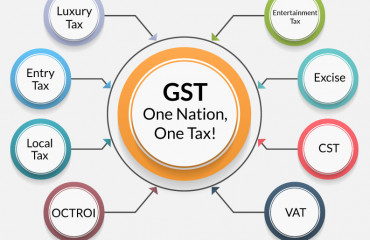NEW DELHI: Shipment of goods across states picked up in the first half of December, recovering from the slight dip in November after the peak festive season, as per official e-way bills data.
Daily average generation of e-way bills needed for goods transportation stood at 2.2 million in the first 19 days of December, recovering from 2 million seen in November and compared with a robust 2.37 million generated in October.
Indicators suggesting the robustness of the economic recovery would be significant input to policy makers who are currently drawing up the contours of the union budget for FY23 and key fiscal numbers. Also, stable oil prices and absence of another wave of the pandemic will be crucial for the economy in the coming months.
Goods and services tax (GST) on transactions in December will be collected in January. After the initial impact of the second wave of the pandemic, both GST receipts of the central and state governments and the Centre's direct tax collections have remained strong.
GST collections had grown from ₹92,000 crore in June to ₹1.31 trillion in November, the second highest since GST roll out. The central government said last week its net direct tax collection so far this year has touched ₹9.45 trillion, growing 60.8% year-on-year. The indications are that the government may meet its ₹22 trillion gross tax collection target although the same cannot be said about meeting the ₹1.75 trillion disinvestment target.
Daily average generated e-way bills is taken as a yardstick to predict GST collections and, in turn, economic activity, said Archit Gupta, founder and chief executive officer of Clear, an online tax service provider.
"The holiday season has pushed sales across the country, which may have led to this uptick. These numbers are reflective of transport and economic activity. The volume of e-way bills generated in a month has had a direct impact on the monthly GST collections in the past and we can expect the same to continue in the future as well unless there is a major GST rate overhaul in the upcoming month," said Gupta.
The easing of fiscal situation can potentially strengthen the government's effort on infrastructure spending which will have a multiplier effect on the overall GDP growth, D.K. Srivastava, chief policy advisor at EY India, said in a review of the economy on Thursday.
The government should also ensure that the new coronavirus variant, Omicron, is kept well in check so that any subsequent lockdowns can be avoided, said Srivastava.
GST being a tax on consumption, analysts closely watch e-way bill data as a lead indicator of economic activity. GST collection of central and state governments, which got impacted due to covid related restrictions during the pandemic's second wave early this financial year, has been improving since June.

